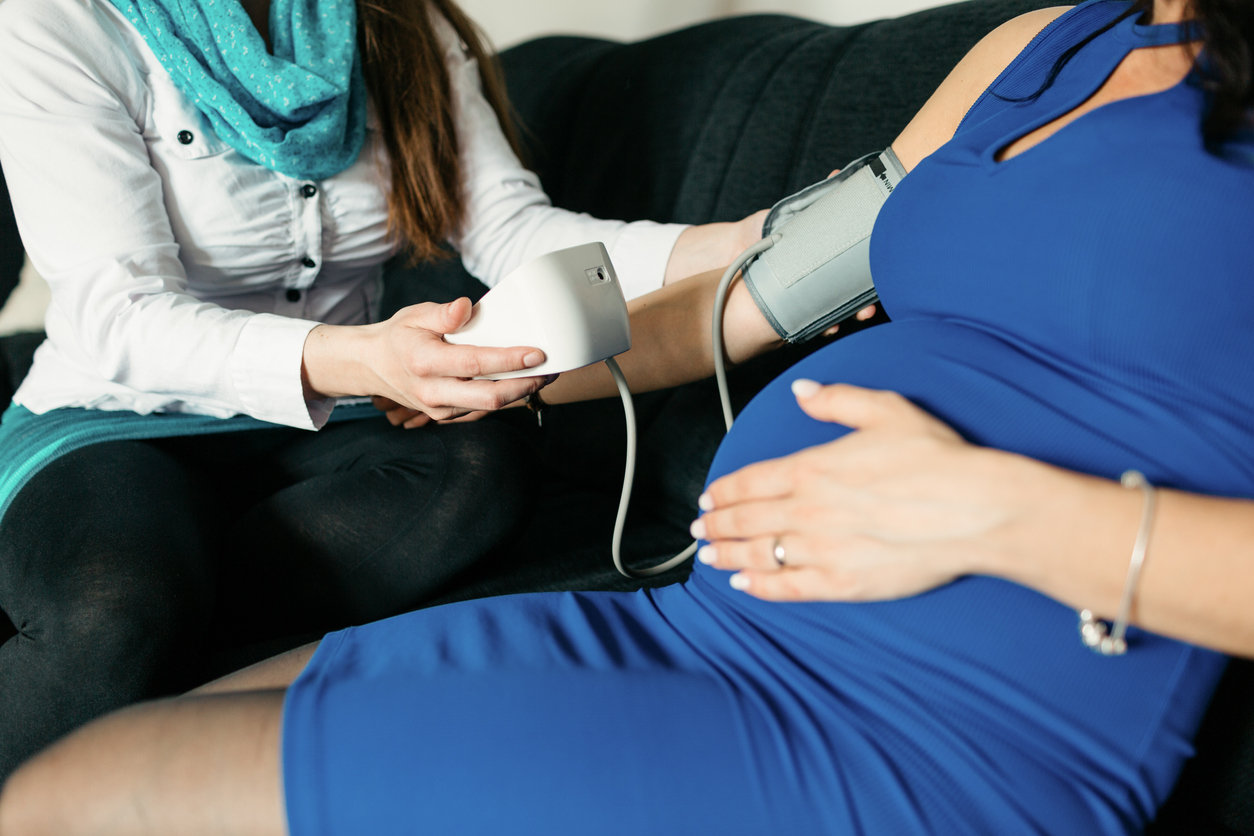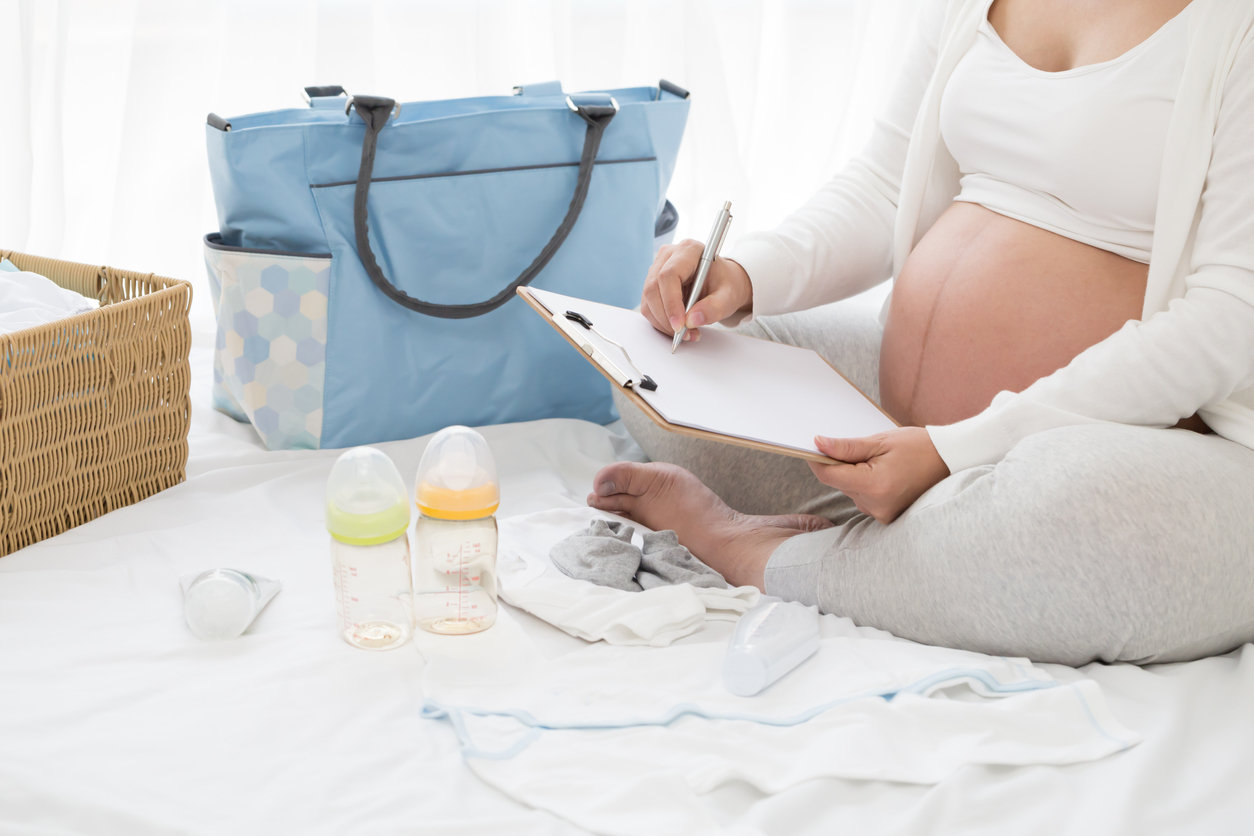
Although, nowadays, having a baby at home instead of at a hospital might seem strange to many, historically it's how it was done for centuries. It wasn't until the 1900s that more women started delivering their babies at hospitals, and eventually that became the norm. Still, home births have never gone away, and lately they are becoming a choice that more pregnant women are actively considering in order to stay away from hospitals where they might be exposed to germs, viruses, and diseases that they would rather avoid. "People are reconsidering their birth plans and doing whatever they need to avoid hospitals,'' Sarita Bennett, president of the Midwives Alliance of North America told The New York Times.
More from MamásLatinas: Inspiring celebrities who have had natural births
If you are considering delivering a baby at home, you definitely want to do your research and talk to your doctor to see if it is a safe and viable option for you. A home birth is something that should be planned ahead of time so that you can set yourself and your baby up for the best possible outcome, while also having a contingency plan should anything go wrong. It's not a decision you should make based on any so-called "trends" and it's also not something you should be dissuaded from doing out of fear of being judged by people who have no business judging you.
We are not doctors, medical professionals, midwives, or doulas, which we encourage you to reach out to with questions if you are considering having a home birth. What we are here to provide you with is information to help you ask the right questions and eventually make an informed decision about whether a home birth is right for you. OK, let's get into this, shall we?
What exactly is a home birth?

A home birth means that you are giving birth somewhere other than a hospital. It could be at your own home, someone else’s home, or even a birthing center that is not a hospital. Just to be clear, it’s a planned birth somewhere other than a hospital, not like you had a baby in a cab on the way to the hospital because you couldn’t get there in time.
Consider where you would like to give birth.

If you don’t want to deliver your baby at a hospital, where do you want to do it? Will you be doing it at your own home or someone else’s? Do you have the space needed? Research the supplies you will need. How far away are you from a hospital should you or your baby need to be transported?
You’ll need a team.

You’ll want to put together a team of health care professionals that include an obstetrician, a midwife, and a doula, if you would like one. Remember that you will all have to work together, but basically everyone is working for you, so make sure you interview various people for the positions and that everyone works well together and has the same vision that you have.
What is a midwife?

Basically, a midwife is someone who is a trained health professional specializing in caring for women during labor, delivery, and after the birth of a baby. They deliver babies at your home, at birthing centers, and sometimes even at hospitals. There are midwives with different levels of training. There are certified nurse-midwives, certified midwives, certified professional midwives, and lay midwives. “Choose a certified nurse-midwife, a certified midwife, a midwife whose education meets specific standards or a doctor practicing obstetrics within an integrated and regulated health system,” advises the Mayo Clinic.
What is a doula and do you need one?

According to the Mayo Clinic, “A doula is a professional labor assistant who provides physical and emotional support to you and your partner during pregnancy, childbirth and the postpartum period.” A doula can be a great source of support emotionally and physically. They can also help you communicate with your whole team. Keep in mind that they are not there to give you medical advice, though.
Who gets to be at the birth with you?

As you may be aware, in certain instances you may have to deliver a baby without a support person in the hospital by your side. Meaning your partner or spouse might not be able to be there with you during the delivery process. That’s not always the case, but can happen when the hospital is limiting the number of people allowed in hospitals to help prevent the spread of diseases. When you have a home birth, you can choose who gets to be a part of the experience with you. You may not want your entire extended family in the room with you, but you can choose to have them at the home in a different area.
Can you have a water home birth?

Sure. Talk to your midwife about setting up a birth tub. The tub can provide comfort during the labor process. Some women like to have the tub available for use while they labor even if they do not end up giving birth in it. But that is something you have to plan for in advance as you can’t just run out and get one once you start laboring.
Is a home birth a safe option?

Home birth is safe option for women who have low-risk pregnancies and are delivering a full-term baby. If the mother or baby are at a higher risk for experiencing complications that require medical intervention, a hospital birth is a safer option.
What about pain management during a home birth?

Keep in mind that when you have a home birth, your options for managing pain do not include an epidural or pain medication. You will instead rely on relaxation techniques that you will have learned and in some cases nitrous oxide gas can be provided for pain relief. If you want pain medication to be an option, then a home birth is probably not the best choice for you.
You cannot have a C-section at home.

This might seem obvious, but we have to mention it because some people just don’t know. “I’m having women call saying, ‘I want a C-section here,’” Trinisha Williams, director of midwifery at the Brooklyn Birthing Center told The New York Times. “But we don’t do that.” A C-section is a surgical procedure that must be performed by doctors in a hospital.
When is a home birth not recommended?

The American College of Obstetricians and Gynecologists warns against home births if:
- You are expecting multiples
- Your baby is not in a headfirst position when it’s time to deliver
- You’ve had a C-section before
Have a plan and a backup plan.

Birth plans never go as planned, but they are especially important to have when you are having a home birth. You and your team need to have a plan in case things don’t go perfectly and you need to be transferred to a hospital. Even if everything goes perfectly, having a contingency plan, will give you peace of mind.
What are some of the reasons you might have to be transferred to a hospital during a home birth?

This isn’t an exhaustive list, but a few reasons you might need to be transferred to a hospital during a home birth include:
- Labor is not progressing
- Baby is showing signs of distress
- Baby is not presenting headfirst
- High blood pressure
- Bleeding
Does insurance cover home births?

Whether or not your health insurance covers home births or not, depends on your insurance and is really something you need to consider from the very beginning. Get in touch with your health insurance provider and ask them what exactly they cover, if they cover anything at all. Delivering a baby at home is considerably less expensive than delivering at a hospital, but that might not be the case for you if you have to pay for everything out of pocket.
Do your research and make the best choice for you and your baby.

Talk to your doctors, research your options, then make an informed decision. If you are choosing a team of care providers that have your best interests in mind, then the idea is that they will help you make safe choices. You would hope that if you go to a midwife and tell them that you have any health issues that could complicate matters during a home birth that they would advise you to either consider a birthing center where you could still use a midwife, but have access to doctors if needed or a hospital setting where you will most definitely have access to medical intervention. In the end, though, you are your own best advocate.




